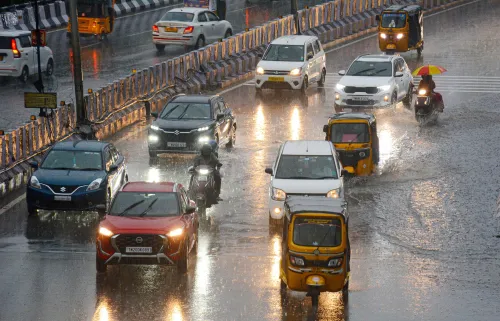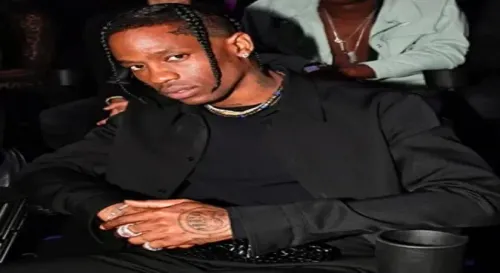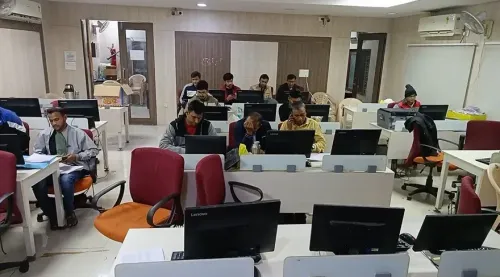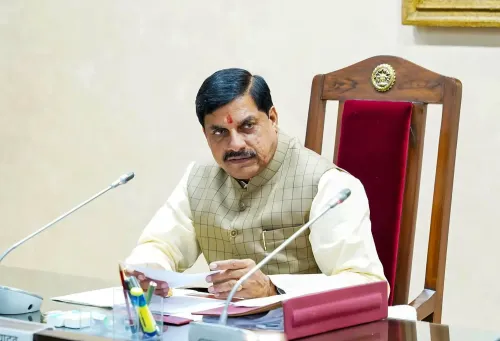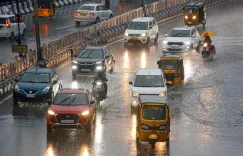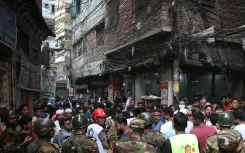Can Trump and Putin Bring Peace to Ukraine?
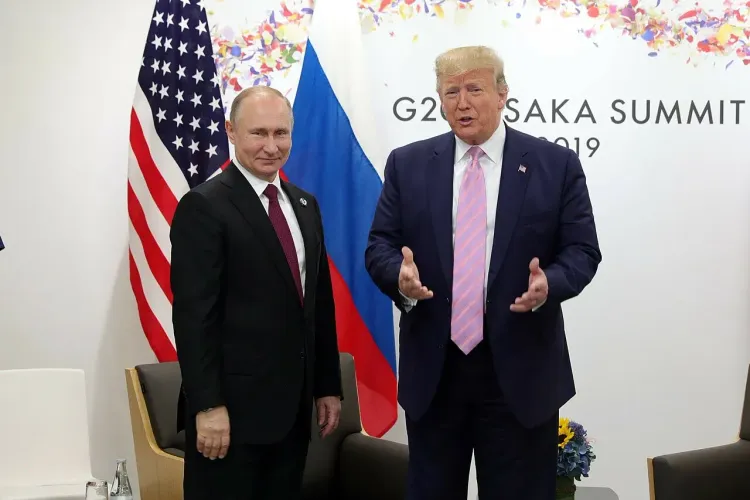
Synopsis
Key Takeaways
- Trump and Putin aim to resolve the Ukraine War.
- Successful talks could alleviate tariffs on India.
- Ukraine's participation is crucial for any agreements.
- International leaders support efforts for peace.
- Potential economic cooperation may emerge from the summit.
New York, Aug 15 (NationPress) Presidents Donald Trump and Vladimir Putin expressed a sense of optimism as they geared up for their Friday summit, aimed at resolving the ongoing Ukraine War. A successful outcome could potentially prevent the imposition of a punitive 25 percent US tariff on India for importing Russian oil.
During a Fox Radio interview on Thursday, President Trump stated, "I believe now he (Putin) is convinced that he’s going to make a deal. He’s going to make a deal."
In a briefing with his advisers at the Kremlin, President Putin acknowledged President Trump’s "fairly vigorous and sincere efforts" to cease hostilities and achieve a resolution that benefits all parties involved in the conflict.
If a peace agreement is achieved, India could circumvent the oil tariff that is set to be imposed on August 27.
However, Ukraine’s President Volodymyr Zelensky, a key player in any potential agreement, will not attend the summit taking place at a US military base in Alaska. Instead, he is in London meeting with Britain’s Prime Minister, Keir Starmer. They expressed in a joint statement that the Trump-Putin discussions “present a viable chance to make progress as long as Putin takes action to prove he is serious about peace.”
While the summit preparations were underway, Zelensky reached out to Prime Minister Narendra Modi to discuss the situation, agreeing that “everything concerning Ukraine must be decided with Ukraine’s participation. Other formats will not yield results.”
President Trump emphasized that it was up to Presidents Zelensky and Putin to finalize any agreement.
Trump mentioned that his discussions with Putin were meant to “set the table for the next meeting,” which he indicated might include President Zelensky and possibly some European leaders.
At the White House, he stated, “The more important meeting will be the second meeting that we’re having, which will involve President Putin, President Zelensky, and myself, and perhaps some European leaders.”
Following a videoconference with Western European leaders, who are skeptical of his efforts, Trump received tentative approval for his initiatives.
Leaders from countries such as Britain, France, Germany, Italy, and Poland, who strongly support Ukraine and oppose Putin, expressed their support for Trump’s endeavors to end Russia’s aggressive actions and achieve lasting peace for Ukraine. They noted that “meaningful negotiations can only occur in the context of a ceasefire or reduction of hostilities.”
While remaining optimistic, Trump stated, “I’ll know within the first five minutes whether or not we’re going to have a good meeting or a bad meeting. If it’s a bad meeting, it’ll end very quickly. And if it’s a good meeting, we’re gonna end up getting peace in the pretty near future.”
Previously, he assessed the likelihood of the talks failing at 25 percent.
He also warned Putin that there would be “very severe consequences” if his peace mission does not succeed.
The discussions are set to commence at 11:30 A.M. local time in Alaska (1 A.M. Saturday in India), as stated by Putin’s foreign policy aide Yury Ushakov.
Ushakov indicated that the two leaders would hold a joint press briefing after their summit, which will begin with one-on-one discussions, followed by a meeting with their main aides, and a breakfast meeting.
Putin aims to expand the meeting’s agenda beyond the Ukraine War to include restarting nuclear arms control discussions and trade.
According to a Kremlin transcript, Putin shared with his advisers, “The aim is to establish long-term conditions for peace not only between our countries but also in Europe and indeed globally – especially if we proceed to subsequent stages involving agreements on strategic offensive arms control.”
This reference pertains to the New START Nuclear arms control negotiations, from which Russia withdrew in 2023.
Ushakov hinted at the prospect of economic cooperation, a topic of significant interest to Trump. He mentioned, “An exchange of views on the further development of bilateral cooperation, including in the trade and economic spheres, is also expected. It is worth noting that this cooperation holds immense, yet regrettably underutilised, potential.”
Putin’s team will include Finance Minister Anton Siluanov and Special Presidential Representative for Investment Kirill Dmitriev.

